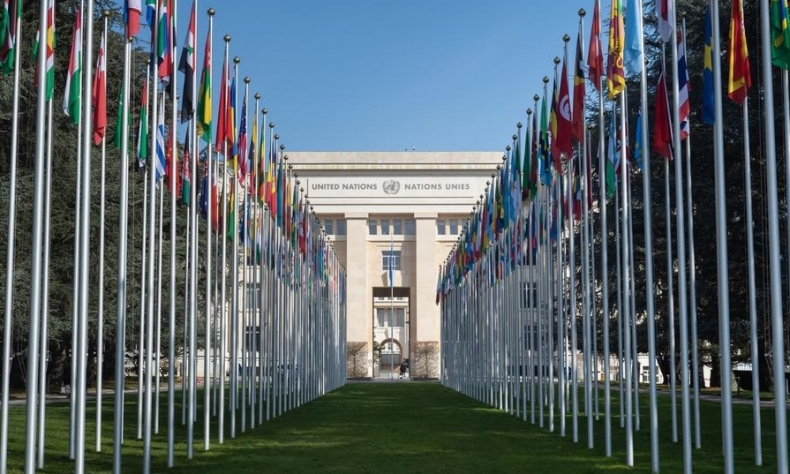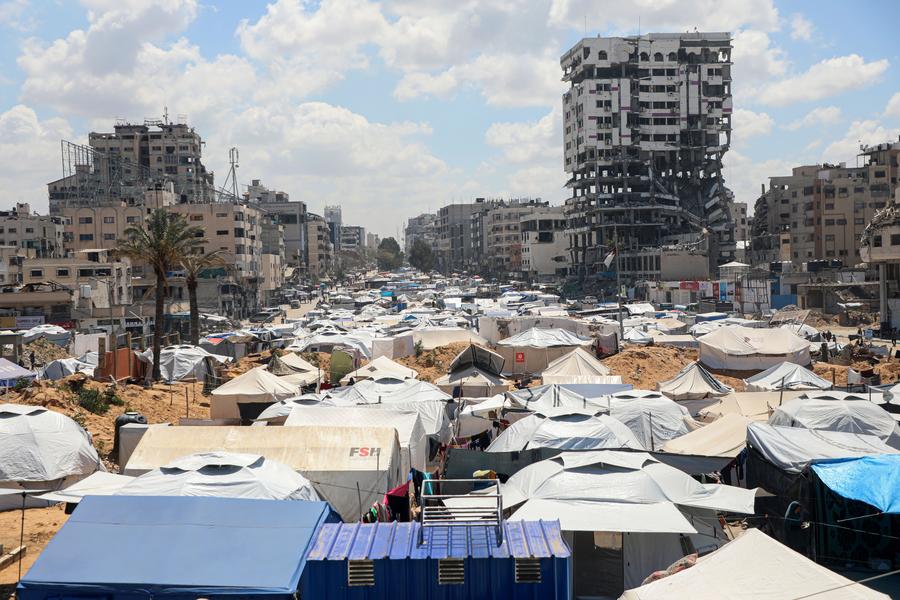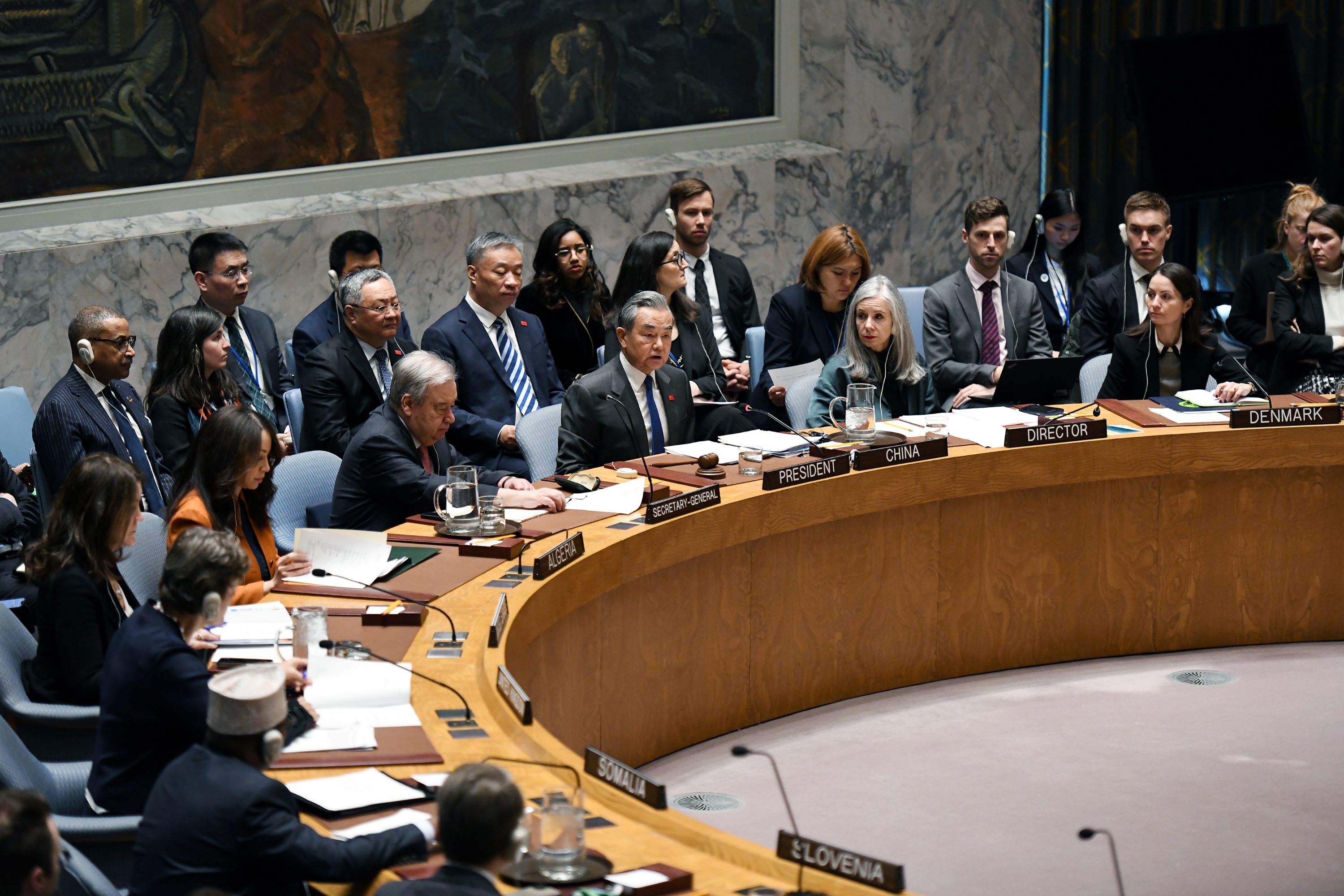Anti-Geopolitical Recession

It is hoped that there will be enough wisdom and courage in all quarters for us to shift into more cooperation, so that the world won’t move from geopolitical recession to depression.
In an interview with Beijing Review reporters Tao Xing and Peng Jiawei in March, Vuk Jeremić, President of the 67th Session of the United Nations General Assembly and President of the Center for International Relations and Sustainable Development (CIRSD), a global public policy think tank based in Belgrade, Serbia, shared his views on the development of the UN over the past 80 years, the current global situation, as well as future prospects. Edited excerpts from their conversation follow:
Beijing Review: This year is the 80th anniversary of the UN. How do you evaluate the role the UN has played in the world over these decades?
Vuk Jeremić: The UN is arguably one of the greatest and the most successful peace projects in human history. Created in the aftermath of the biggest calamity in human history—World War II (1939-45), it has served as a very important platform that helped facilitate a series of amazing things, especially when it comes to the development of large swaths of the world. Despite some transgressions, the past 80 years have been the years of peace—if you look from the perspective of the conflict between great powers. So I think that the UN has done an amazing job.
But today I think the UN is in trouble. It’s in trouble because, essentially, it is a club of members. When member states choose to cooperate, then the club is successful. And it expedites and accelerates the fulfilling of the hopes and dreams of the member states. But on the other hand, when the member states decide to be confrontational, when they view their interactions mostly through a zero-sum lens, then the club struggles. Unfortunately, these days, not just the UN, but the vast majority of international organizations are essentially in trouble because of the conduct of some of the main actors in the global arena.
In the current global landscape, some long-lasting conflicts and territorial disputes remain unresolved and new geopolitical challenges are emerging every minute. How should the UN strengthen its role amid these challenges? Where do you think it is headed in the future?
It’s not that the UN can do something about it because it is just a club. The main question is what the member states are going to do under such difficult conditions.

I believe that we are living in a “geopolitical recession.” When one mentions recession, most people immediately think of economics because in that field, recession is a well-defined term. What exactly is a recession? It’s quantified: We’re talking about two consecutive quarters of negative growth in a particular country or region. Geopolitics is also cyclical. Just like in economics, there are periods of boom followed by periods of bust—and right now, we are living in a bust period, a recession period. During the recession, international organizations struggle. They come across as ineffective. They fail to deliver global goods that they are expected to deliver to the peoples of the world.
I think there is a complex and overlapping future where member states might evolve in three phenomena.
Number one is to reform the institution so that they can better reflect the realities of the moment, and that they are better equipped to deal with the challenges of the contemporary time.
Number two is to build new institutions and organizations because if the old ones do not function or can’t be reformed, then you need to build new ones or invest more energy into cooperation with alternative international organizations. BRICS is one such organization. (BRICS is a 10-member group of emerging economies originally consisting of Brazil, Russia, India, China and South Africa—Ed.)
The third is to focus more on self-established priorities and do things unilaterally. What the U.S. Government is doing is an example in the economic sphere, in the trade field, introducing unilateral tariffs on trading partners.
I believe that in the next few years, we’re going to see a combination of all three playing out. There will be attempts at reform of the UN and other organizations. There will be a rise in prominence of alternative organizations. Unfortunately, there will also be more examples of unilateral action around the world. This “geopolitical recession” could deepen unless strategic thinking is restored.
How do you view China’s contributions to the UN? And what suggestions do you have for China to take on a bigger role within the UN framework?
China has been a global stabilizer for a while already, making very positive contributions to the multilateral discourse in the UN. I very much hope that China is not going to diverge from this path, being subject to provocations.

When it comes to the reform of international organizations, I hope that China will invest additional efforts in pushing for reforms that are necessary in the UN, so that a less zero-sum and more win-win attitude prevails within the world body.
As a permanent member of the UN Security Council, China’s role is critical. I think China has the capacity to lead by example. It has been doing this so far and large parts of the world are happy to follow.
This “lead” is one with a cooperative attitude that is equitable and just and treats each and every country with respect. That has been our experience in Serbia. I come from Serbia, a country that has maintained excellent relations with China. This relationship has been built over many decades, and recently it culminated in the signing of the China-Serbia agreement to jointly build a community with a shared future. I believe we are the first European country to have made such a commitment in an official capacity. I’m confident that this path—a path of friendship and mutual support—will continue in the years to come.
How do you assess the shifts in the current international order? Are we moving toward a more divided road or a more multipolar and integrated world?
We do live in a multipolar world already. And this has been a reality for over a decade now. The U.S. was in denial of this reality. But U.S. Secretary of State Marco Rubio said just a few days ago that we are living in a multipolar world, the first kind of official U.S. acknowledgment of the fact.
You can have a cooperative attitude in a multipolar world where multiple pulses work with each other and try to come to common solutions for global challenges. I very much hope that we are going to eventually end up in that situation and that there will be enough wisdom and courage in all quarters for us to shift into something more cooperative, so that we don’t move from recession to depression.
Geopolitical depression means global war and I hope that it’s not going to take another global war to come to a solution.
 Facebook
Facebook
 Twitter
Twitter
 Linkedin
Linkedin
 Google +
Google +










